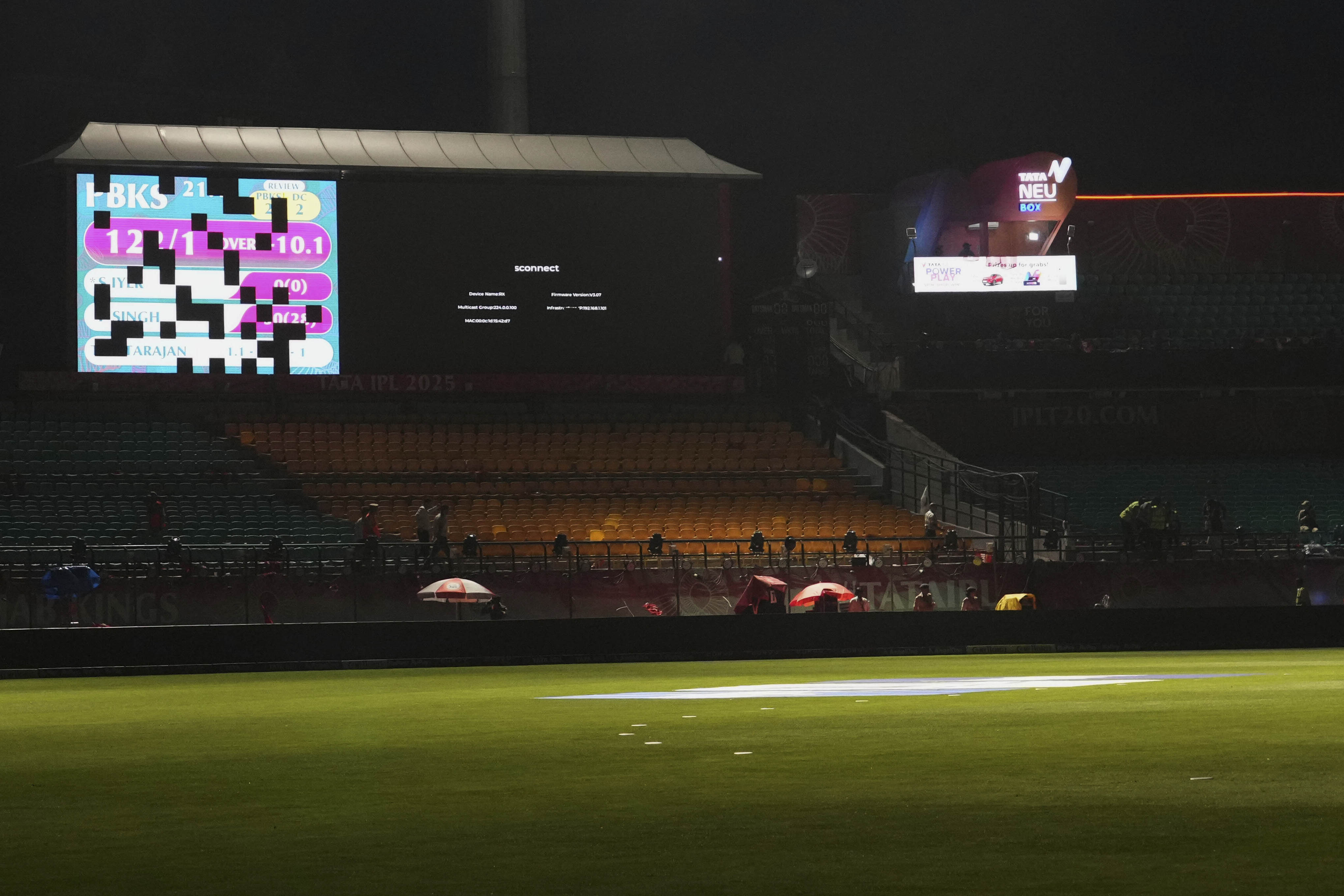First the blackout, then the shutdown, now the ceasefire and continued uncertainty. If it feels perverse to discuss such trivialities as sport given the human impact of a worrying – albeit apparently de-escalated – conflict between India and Pakistan, it is necessary to consider just how beholden cricket is to the former of those countries.
When India’s cricket masters ask another nation to jump, the required response is not only to ask how high, but politely to pose the question of whether anything else can be done while airborne to placate the sport’s superpower.
So, while the short-term impact of this week’s Indian Premier League (IPL) suspension has been the ripping up of schedules and hasty repatriation of players, it is the greater unknown of what might happen next that provides the greatest concern for every country reliant on the global cricketing behemoth.
A sport that is reliant on Indian income – and, in no small part, matches between two nations that had appeared on the cusp of war – is having to ponder the repercussions of an entwined existence with a geopolitical volcano.
The overwhelming majority of foreign players who should be competing in the IPL are either safely back in their home countries or making that journey. A number of them were evacuated on specially arranged trains from the Indian city of Dharamsala on Thursday, when a political conflict dramatically reached the sporting sphere courtesy of a mid-match abandonment 10.1 overs into Punjab Kings’ innings against Delhi Capitals.
The floodlight failure that prompted the termination was initially thought to be caused by a technical fault, before it quickly emerged that the decision had been taken to pull the plug at a ground situated close to the contested region of Kashmir. A day later, the IPL confirmed it was halting all games for a week.
The Pakistan Super League (PSL) – whose seven-strong English contingent compares with 10 at the IPL – had already postponed their match scheduled for Thursday. They then decided to switch the remainder of the tournament to the United Arab Emirates, only to promptly embark on an embarrassing U-turn amid reports that the Emirates Cricket Board did not want to show favouritism towards one of the two nations in dispute. On Friday, the PSL was postponed indefinitely.
News of Saturday’s ceasefire has staved off fears of a full-scale war, but only marginally dampened cricketing concerns.
With the entire English IPL and PSL cohort now believed to have returned home, the immediate future of those tournaments is undetermined. Sixteen matches remain in an IPL competition currently led by Gujarat Titans, while the PSL is eight games from completion. The last of the matches was due to be held on 25 May.
No sooner had the IPL halted play than the former England captain, Michael Vaughan, suggested hosting the tournament’s conclusion in England immediately prior to India’s five-Test visit in June and July. That seems unlikely in the time available, although senior figures from the England and Wales Cricket Board (ECB) are known to have offered support to their Indian and Pakistani counterparts.
Newsletters
Choose the newsletters you want to receive
View more
For information about how The Observer protects your data, read our Privacy Policy
Should the Indian authorities give the green light for a swift resumption of the IPL following its one-week hiatus, one option is to condense matches into fewer days and grounds within India. If not feasible, the IPL’s financial value means the desire to conclude the tournament elsewhere will be great. IPL matches have previously been held in South Africa and the United Arab Emirates, and similar circumstances could see the remaining IPL games take place in England in September.
Currently, the Asia Cup is scheduled for that month, although the status of that competition is – like so many things – highly uncertain. So, too, any future matches between India and Pakistan, who have not met outside of multi-nation events since 2013.
Those fixtures are so desirable, and lucrative, that tournament draws are effectively fixed to ensure the two nations always meet. However, India’s refusal to travel to Pakistan for the Champions Trophy earlier this year prompted the International Cricket Council (ICC) to decree that future meetings between the pair will take place at a neutral venue. The Women’s World Cup is due to take place in India in October, with Pakistan playing all games in an unspecified other country.
As with so much in this dizzyingly fast-moving situation, the ramifications for English players are unknown. A red-ball visit of India sits beneath only the Ashes as the most-anticipated of cricketing showdowns in England. With all five Tests expected to sell out, the ECB will endeavour to ensure the series goes ahead regardless of any ongoing hostilities between India and Pakistan. The governing body is understood to be monitoring the situation.
Meanwhile, the 17 English players who only days ago were preparing for T20 franchise duty in Asia are now waiting to see what the IPL and PSL propose before determining whether any new arrangements are satisfactory.
Former England captain Michael Atherton this week criticised the ECB’s decision to allow batter Jacob Bethell to continue playing for Royal Challengers Bengaluru in the IPL and forgo selection for this month’s one-off Test against Zimbabwe. Not picked in England’s 13-man squad for that match, the 21 year-old could now find himself playing red-ball cricket for his county Warwickshire while the Test takes place at Trent Bridge.
Although, such is the speed of ongoing developments, that the landscape could look entirely different next week. Upon India does he, and the rest of the cricketing world, await.
Photograph by AP Photo/Ashwini Bhatia

